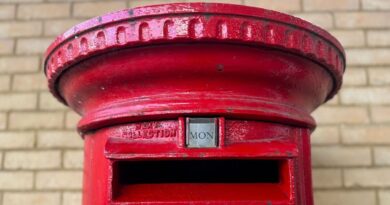Four in 10 adults still unclear about recycling practices in the UK
A poll of 2,000 adults has found four in 10 are still baffled when it comes to recycling – with 47% struggling to tell what is recyclable and what isn’t.
Many Brits mistakenly believe that items such as glass jars, tin cans, and plastic takeaway containers should be thrown away in the general waste bin, when in fact they can be recycled.
Broken glass and aerosol cans also often end up in the wrong bin and the survey found that 16% of people are unaware that metal bottle tops can be recycled, while 12% incorrectly believe that tins belong in the regular waste bin.
This research comes as the “Simpler Recycling” legislation is set to take effect on 31st March 2025, requiring businesses with 10 or more full-time employees to separate plastic, paper, cardboard, glass, metals, and food waste from general waste or face a fine.
Roger Wright, waste strategy and packaging manager at Biffa, which commissioned the research, stressed the importance of clear and accessible recycling information to help people make more sustainable choices.
“People care about the environmental impact of their rubbish,” Roger explained, “but there is still a lot of confusion about what can and can’t be recycled, and many people are still struggling to get it right.
“Recycling rates across the UK have stagnated and even declined in some areas, so it’s crucial for all of us to help the public understand what’s recyclable and what isn’t.”
The study reveals that 42% of people experience “recycling guilt” when they throw recyclable items into general waste. To tackle this, 69% believe better information is needed to improve recycling habits.
Simplifying recycling rules could make a big difference, according to 40%, while a third think incentives might encourage greener behaviors.
It’s not all bad news—53% of respondents say they recycle multiple times a day at home. However, there’s room for improvement, as 26% admit they avoid sorting recyclables due to confusion about what’s actually accepted.
Are you able to tell your recyclables from your general waste? Take the quiz to find out.
Looking ahead, new regulations taking effect on 31st March 2026 will require local authorities to introduce consistent weekly recycling and food waste collections, aiming to simplify the process for households.
Roger Wright from Biffa stressed the importance of proper recycling habits, noting: “Recycling correctly preserves valuable materials, reduces waste, and supports a healthier planet for future generations. However, food residue and liquids left on recyclables can contaminate entire batches, resulting in disposal rather than reuse.”
He added, “Simple actions, such as rinsing containers and keeping recyclable items out of general waste, can have a significant impact.
“The new legislation is a crucial step toward reducing contamination, encouraging behavioral change, and reviving stagnant recycling rates as we progress toward the UK’s net-zero goal.”





